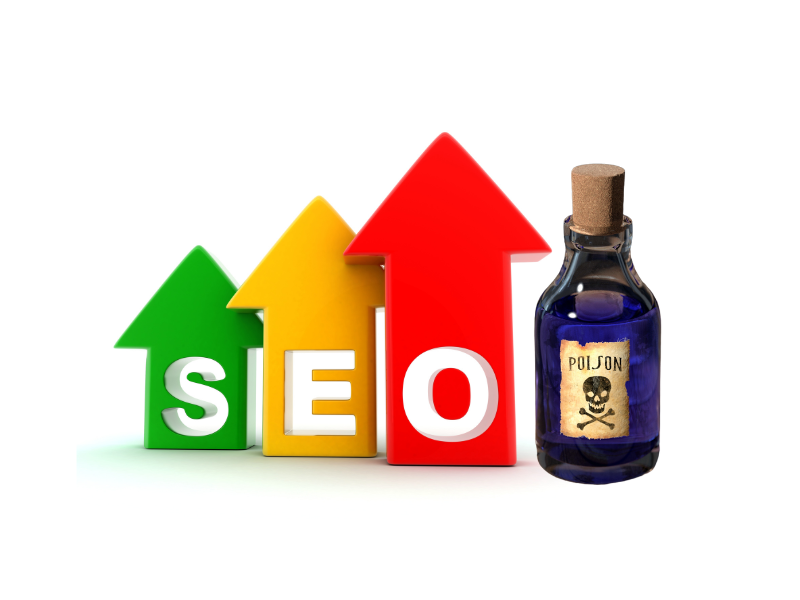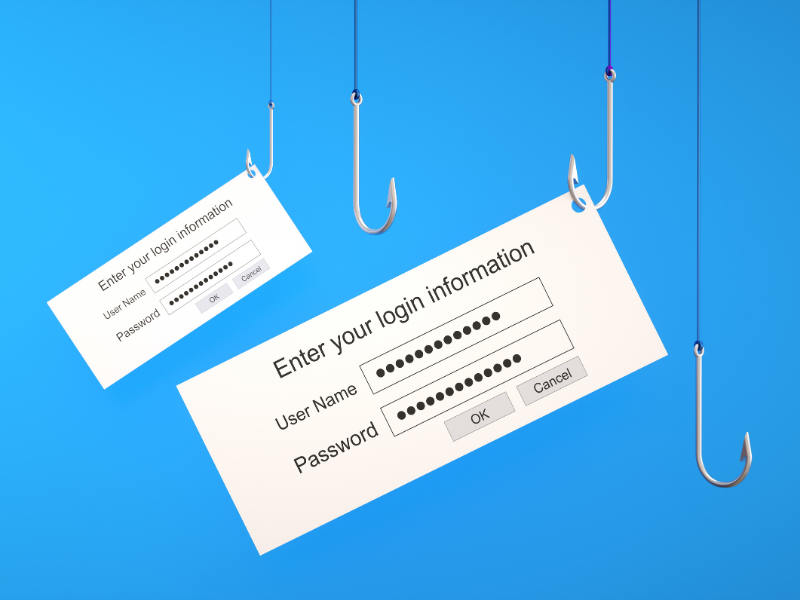June 23, 2023
Phishing stands out as a prevalent method employed by malicious cyber actors to breach healthcare data networks. Nevertheless, these actors may also establish contact with healthcare employees through online channels.
Recent reports from the Health Sector Cybersecurity Coordination Center (HC3) have brought attention to the worrying phenomenon known as SEO poisoning. Cybercriminals use this technique with the goal of tricking unwary victims into disclosing important information or installing malware.
Unlike traditional phishing methods, SEO tactics manipulate search engine rankings to ensure that these harmful websites appear prominently in search results for specific keywords.
Table of Contents

How SEO Poisoning Works
SEO poisoning aims to manipulate search engine results by ensuring websites appear among the top few listings for specific search terms. These top results receive the most clicks since users perceive them as relevant and trustworthy, often clicking without verifying the URLs.
Unethical techniques, known as black hat SEO tactics, are employed in this process. These tactics include the excessive use of keywords in page content and meta tags (keyword stuffing), creating private link networks to generate more backlinks to the webpage, and artificially boosting clickthrough (CTR) rates to deceive search engine algorithms.
Malicious actors employ SEO poisoning to target important search terms businesses and healthcare workers use. They may also resort to typosquatting to deceive users into thinking they are visiting a genuine website. Typosquatting involves registering domains with misspelled brand names or substituting letters in domain names with visually similar numbers or special characters.
Cloaking is another unethical tactic that cyberattackers employ to deceive search engines. It involves presenting one version of the website to search engine crawlers while displaying a different version to genuine visitors.
The purpose is to manipulate search rankings and secure undeservedly high positions in search results. Cloaking is considered illegal due to its deceptive nature. Search engines should prioritize website quality rather than optimization solely for search engines. This practice undermines the integrity of search engines and unfairly benefits websites that engage in it.

Phishing vs SEO Poisoning: Different Approaches, Same Goal
Phishing and SEO poisoning, two distinct cyberattacks, employ deceptive tactics to exploit users, extract personal information, or lure them into clicking on harmful links. Despite sharing a common goal, these attacks diverge in their techniques and objectives.
Phishing is a social engineering assault that capitalizes on emails or text messages masquerading as legitimate sources, such as renowned banks or credit card companies. These deceptive communications are usually crafted with precision and often feature a hyperlink that, once clicked, redirects the user to an intricately designed counterfeit website, cunningly resembling the genuine counterpart.
This type of cyberattack seizes the opportunity where perpetrators prompt users to input their personal details on a fraudulent platform, facilitating their wicked mission of stealing sensitive information.
In contrast to phishing, SEO poisoning leverages search engine optimization (SEO) to manipulate the hierarchy of search engine results pages (SERPs), strategically elevating malicious websites for targeted keywords. For cybercriminals to accomplish this, they will employ tactics such as fabricating websites that emulate authentic counterparts or injecting malicious code into legitimate platforms.
Ultimately, SEO poisoning effectively secures a prominent position in SERPs for specific keywords leaving unsuspecting users to stumble upon these malicious websites.

Mitigating the Risk of SEO Poisoning for Healthcare Organizations
Security awareness for healthcare organizations plays a crucial role in educating employees on how to recognize phishing attempts. Thus, broadening the scope and encompassing other attack vectors, like SEO poisoning, is imperative to fortify an organization’s defenses. By addressing various attack techniques, your organization can significantly reduce the risk of employees falling prey to malicious schemes.
Web filters also emerge as a powerful defense mechanism, serving as a gateway between users and the vast expanse of the Internet. These filters play a pivotal role by intercepting and thwarting attempts to access known malicious websites. The filters also analyze web content before establishing any connection, ensuring that filtering controls are applied preemptively.
Another thing to note is the practice of restricting access to specific website types or categories. This type of approach helps bolster an organization’s security posture. By judiciously controlling what employees can access, potential avenues for cyberattacks are considerably diminished.
HC3 goes one step further by recommending the utilization of digital risk monitoring tools. These sophisticated tools excel at identifying typosquatting, a cunning ploy wherein attackers register domains similar to legitimate brands or names to deceive unsuspecting users. In doing so, organizations can proactively mitigate risks by diligently scanning newly registered domains for resemblances to established entities.







